
2022 CHCI Graduate Fellows’ Capitol Hill Policy Briefing Series
March 21, 2022
- This event has passed.
March 21, 2022 – March 25, 2022
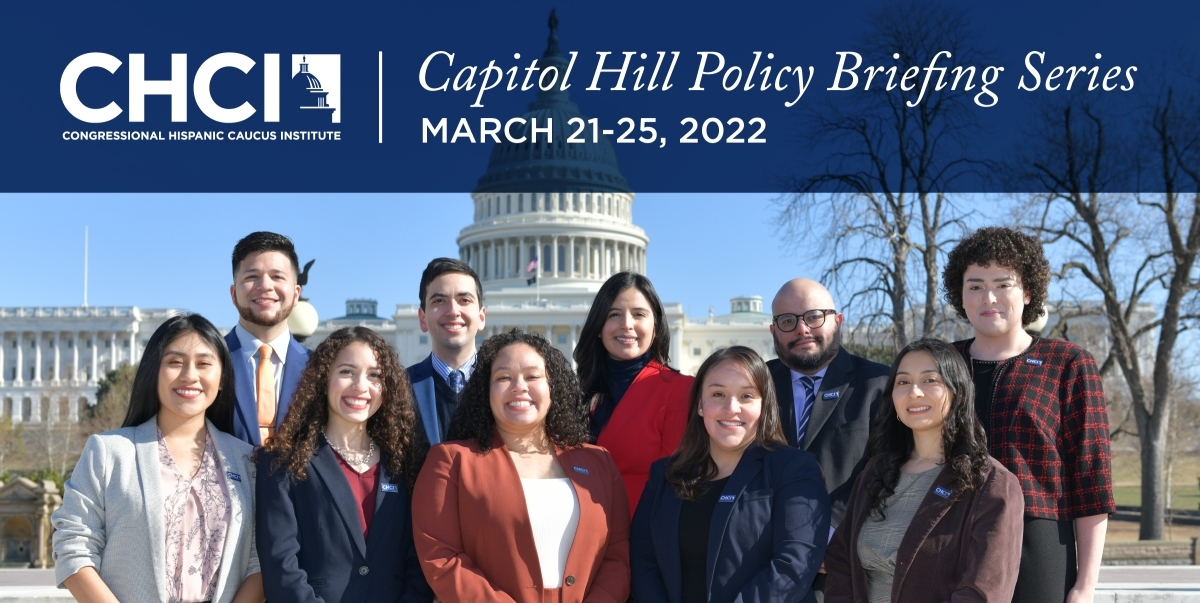
CHCI Is Proud To Invite You To Our 2022 Capitol Hill Policy Briefing Series!
Join the CHCI 2021-2022 Graduate Fellows as they moderate a series of public policy round-table discussions with Members of Congress, public policy experts, and national leaders to tackle some of the most pertinent issues affecting the Latino community and the nation.
DAY ONE: MONDAY, MARCH 21, 2022
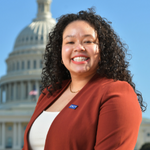
Amaris Benavidez
CHCI -Walton Family Foundation Education Graduate Fellow
Description:
Latino and Black students graduate high school and enroll in college at lower rates than their classmates. In-school postsecondary preparation is proven to be impactful at decreasing these racial gaps in educational attainment. Many readiness practices are highly effective for students of color, including early access to advanced coursework, strong relationships with school staff, and engagement in preparation programs. Due to systemic issues impacting P-12 education, including misaligned curriculum, poor information sharing, and lack of in-school support, students of color are not able to equitably access these opportunities. This briefing will engage panelists in dialogue about how policymakers and educational leaders can address this pressing equity issue, emphasizing the importance of cohesive changes across the P-16 education pipeline and the unique political landscape of states.
FULL POLICY BRIEF
Speakers:

Anika Van Eaton
Interim Senior Director of Policy, uAspire
Anika is Interim Senior Director of Policy for uAspire, a national nonprofit focused on removing financial barriers so that every student has an equitable opportunity to attain a postsecondary degree without burdensome debt. In this role, she leads the strategy and delivery of uAspire’s policy agenda to advance equity, transparency, and affordability in higher education. Before joining uAspire, Anika was Research Manager for the Boston Private Industry Council (PIC), the city’s workforce development board, where she researched and wrote college completion studies, as well as managed and analyzed student data to inform program design and policy for high school and college completion initiatives. In California, she served as Legislative Director for California Secretary of State Debra Bowen, and a California Executive Fellow. She holds a BA from Cornell University and an MPA from George Washington University.

Wil Del Pilar
Vice President, Higher Education Policy and Practice, The Education Trust
Wil Del Pilar vice president of higher education at the Education Trust where he works to advance Ed Trust’s higher education advocacy agenda by developing and implementing strategies to leverage research, policy, and practice to improve accountability, affordability and student success for low-income students and students of color. Wil has experience at both federal, state and institutional levels. Most recently, he served as deputy secretary of postsecondary and higher education for the Pennsylvania Department of Education but has also worked at a variety of institutions in admission, financial aid and development.

Anne-Marie Núñez
Professor, Dept. of Educational Studies, Higher Education & Student Affairs Prgm, The Ohio State University
Anne-Marie Núñez is Professor of Educational Studies in the Higher Education and Student Affairs program at The Ohio State University. Her award-winning research employs sociological approaches to advance equitable postsecondary educational opportunities for historically underserved groups in higher education. Her scholarship has focused on (1) postsecondary trajectories of Latinx, first-generation, migrant, and English Learner students; (2) institutional diversity in the U.S., including the role of Hispanic-Serving Institutions (HSIs) in promoting college opportunities; and (3) building inclusive and equitable environments in STEM disciplines and HSIs. In 2009, she co-edited the first special issue on P-16 partnerships, in the Journal of Hispanic Higher Education. In addition, she co-edited Hispanic-Serving Institutions: Advancing Research and Transformative Practice, an International Latino Book Award winner that is the first book to focus on HSIs as organizations and their role in the American higher education system. She has served as a National Academy of Sciences, Engineering, and Medicine (NASEM) Committee member, helping to co-author and disseminate a 2019 report on the contributions of Minority-Serving Institutions to the science workforce, entitled Minority Serving Institutions: America’s Underutilized Resource for Strengthening the STEM Workforce. For her sustained and exemplary research record, she was recently selected as an American Educational Research Association (AERA) Fellow. She collaborates with scientists on over $10 million in grants from NSF to build equitable environments in geosciences and computing, raise Latinx attainment in STEM fields, and strengthen STEM capacity in HSIs.
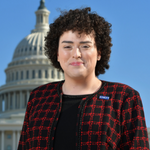
Aaron Campos
CHCI-Child Welfare Graduate Fellow
Description:
Hispanic children are overrepresented in foster care across over a dozen states. The timeline required by the Adoption and Safe Families Act (ASFA) of 1997 is uninformed of the barriers faced by many Hispanic parents striving to reunify with their children. This briefing will focus on why child welfare systems should integrate policies to screen families’ legal status, establish language access protocols, recruit a diverse workforce reflective of the communities served, and curate memorandums of understanding (MOUs) with key community and government stakeholders to support family reunification plans. Special attention will be given to challenges faced by families at the intersection of child welfare and immigration issues.
FULL POLICY BRIEF
Speakers:
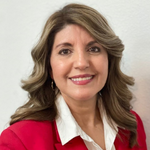
Maria L. Nuno,MSW
Family Engagement Liaison, Casey Family Programs
Maria L. Nuño is a bilingual/bicultural social worker who has been providing direct services to youth and families for the past 27 years within the public, private and non-profit sectors. The past 15 years, while at Casey Family Programs in the San Diego Field Office, she has had an emphasis in serving Spanish speaking clients in her various social worker roles and now as a Family Engagement Liaison. She has been actively involved in the development of culturally specific and culturally sensitive communications, forms, curriculums, and services directed at working with Latino families. Her dedicated work with youth and families, has been acknowledged through internal Foundation recognitions such as the 2014 Casey Family Programs, Employee Achievement Award and the 2016 Casey Family Programs, Child Family Services All-Star Rock Solid Award. She also co-authored an article: Working Across Borders: Effective Permanency Practices at the Intersection of Child Welfare and Immigration” published in the Child Welfare League of America Journal special edition on “The Intersection of Immigration and Child Welfare” January 2019.

Essey Workie
Director, Human Services Initiative, Migration Policy Institute
Essey Workie is Director of the Human Services Initiative at the Migration Policy Institute (MPI). Her research interests include immigrant children and families, health and human services, equity, and leadership development.
Ms. Workie has held several leadership positions. She previously founded and directed the refugee health divisions at both the federal Office of Refugee Resettlement and the U.S. Committee for Refugees and Immigrants. In 2014, as the Regional Administrator for the Administration for Children and Families, she coordinated regional efforts to increase shelter capacity during the increased arrivals of unaccompanied children. As a nonprofit consultant, she also codesigned a new shelter facility for unaccompanied children.
Ms. Workie has a bachelor’s degree in psychology from James Madison University and a master’s degree in social work from Temple University. She is also a certified diversity executive and leadership coach.

Megan Finno-Velasquez
Associate Professor & Director, Center on Immigration and Child Welfare, New Mexico State University
Megan Finno-Velasquez, PhD, LMSW, is an Associate Professor and Director of the Center on Immigration and Child Welfare in the School of Social Work at New Mexico State University, in Albuquerque, NM. Dr. Finno-Velasquez has spent the past 15 years working at the intersection of child welfare and immigration issues, as a child welfare practitioner, administrator, and researcher. Her research centers around the impact of immigration policy on child welfare system experiences, culturally competent maltreatment prevention strategies, and improving child welfare service system response to the needs of immigrant families. In 2019, Dr. Finno-Velasquez was appointed Director of Immigration Affairs for the New Mexico Children, Youth and Families Department in a position split with her professorship at NMSU, where she is building an immigration unit to improve policies and practices to support immigrant and refugee children along the Mexico border and throughout the state. Dr. Finno-Velasquez received her PhD from the University of Southern California’s School of Social Work in 2015 and completed post-doctoral work with the Children’s Data Network. She was a recipient of the Doris Duke Fellowships for the Promotion of Child-Well-being during her doctoral work. She completed her MSW from New Mexico Highlands University in 2007, and has a BS in Psychology and Spanish from the University of Illinois-Urbana/Champaign.
DAY TWO: TUESDAY, MARCH 22, 2022

Fatima Sierra Vargas
CHCI-Wells Fargo Housing Graduate Fellow
Description:
Systemic inequality remains embedded in America’s housing system due to the laws enacted after World War II, such as race-based loan eligibility criteria and redlining. While racist laws and policies are now illegal, current zoning laws and land-use regulations disproportionately favor white and higher-income homeowners. Most of the residential land across many American cities is zoned for the construction of detached single-family homes. Homeownership is essential to closing the country’s racial wealth gap. While Hispanic homeownership rates have increased in the last six years, the overall number of Hispanic homeowners is still relatively low for non-Hispanic white homeowners. This briefing will address why housing supply shortage and high costs are significant barriers to Hispanic homeownership and how eliminating single-family zoning laws and enacting inclusionary zoning laws will increase Hispanic homeownership rates.
FULL POLICY BRIEF
Speakers:
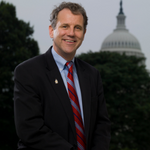
Chairman Sherrod Brown
Senate Committee on Banking, Housing, and Urban Affairs

Noerena Limón
Executive Vice President, Public Policy and Industry Relations, National Association of Real Estate Professionals (NAHREP)
Noerena Limón is NAHREP’s Executive Vice President of Public Policy and Industry Relations. Noerena heads the organization’s policy and advocacy efforts on issues ranging from homeownership, housing inventory, credit access and immigration.
Prior to joining NAHREP, Noerena spent six years at the Consumer Financial Protection Bureau (CFPB) and served as a political appointee under President Obama in the White House Office of Political Affairs. Noerena received her B.A. from the University of California, Berkeley and a Master in Public Policy from the Harvard Kennedy School of Government.

Carlos Martín
Rubenstein Fellow & Project Director, Brookings Institution & Harvard Joint Center for Housing Studies
Carlos Martín is Project Director of the Remodeling Futures Program, and has over 25 years of experience researching housing technology and the physical quality of existing homes. Dr. Martín’s research on green housing, disaster mitigation and recovery, substandard housing, construction innovation, and the construction workforce connects the bricks-and-mortar of existing housing to its social outcomes. Carlos came to the Center from the Urban Institute, where he was a senior fellow. Previously, he was an assistant staff vice president for construction codes and standards at the National Association of Home Builders, SRP professor for energy and the environment at Arizona State University, and coordinator for the US Department of Housing and Urban Development’s Partnership for Advancing Technology in Housing. Carlos is currently serving as a David M. Rubenstein Fellow at the Brookings Institution’s Metropolitan Policy Program and also serves on several National Academy of Science committees. He has previously served on advisory boards for HUD, EPA, and FEMA. Carlos received his BSAD in architecture from the Massachusetts Institute of Technology and his MEng and PhD degrees in civil and environmental engineering from Stanford University.

Rocio Sanchez-Moyano
Senior Researcher, Federal Reserve Bank of San Francisco
Rocio Sanchez-Moyano joined the Federal Reserve Bank of San Francisco in 2020 as a Senior Researcher in Community Development. Rocio’s areas of expertise include housing and asset building, with a special interest in racial equity and the experiences of Hispanic and immigrant households. At the SF Fed, her focus is on emerging trends in community development finance and financial inclusion, including the role of fintech in low-income communities.
Rocio previously worked on a variety of housing topics at the Terner Center for Housing Innovation and Urban Displacement Project at UC Berkeley, and at the Joint Center for Housing Studies at Harvard University. She received a PhD in City and Regional Planning from UC Berkeley, and a Masters in Public Affairs and undergraduate degrees in Economics and Political Science from the University of Wisconsin-Madison.

Larry Kilmer, II
Deputy Director, City of Madison, Community Development Authority
Larry is primarily responsible for directing the Public Housing Authority’s $31 million annual budget which includes managing Public and Multifamily Housing and administering the Housing Choice Voucher program. Larry is also a Steering Committee member for City of Madison’s Housing Team and is engaged in major redevelopment activities under the City’s Redevelopment Authority. Additionally, Larry is an Adjunct Assistant Professor in the Department of Urban Planning at the University of Wisconsin-Milwaukee (UWM) where he teaches multiple courses including a housing markets and public policy graduate course. Prior to his work with the City of Madison, Larry served as the Program Director for the City of Milwaukee’s Neighborhood Improvement Development Corporation focusing on growing and retaining homeownership in Milwaukee’s neighborhoods. Larry is currently completing his sixth semester of UWM’s Urban Studies PhD program and holds master’s degrees in both architecture and urban planning and a BA in architectural studies.

Adam Briones
Chief Executive Officer, California Community Builders
Adam Briones is the CEO of California Community Builders (CCB), where he leads research, advocacy, and community organizing efforts to end California’s racial wealth gap and housing crisis for communities of color. Prior to CCB, Adam was the Greenlining Institutes Senior Director of Economic Equity and helped to secure over $10 billion in community reinvestment commitments from large financial institutions. Previously, Adam spent a decade in housing development and real estate finance, primarily in New York. His work there included acting as Vice President of Real Estate Development at the Genesis Companies, one of the city’s most active African American-owned affordable housing developers. Adam was also a Senior Analyst for HR&A Advisors, a leading national consulting firm specializing in real estate and economic development advisory services. Before that, Adam was a Housing Fellow with New York City’s primary affordable housing finance agencies, the NYC Housing Development Corporation and the Department of Housing Preservation & Development. As a Housing Fellow, he closed construction and permanent financing on over 1,300 units totaling more than $150 million in debt and tax credit equity. As a Congressional Hispanic Caucus Fellow in Washington DC, Adam interned with the office of Congresswoman Maxine Waters and the House Financial Services Committee. Adam has also held internships with Union Banks Community Development Finance group as well as the West Angeles Community Development Corporation, a faith-based community developer. Adam holds a Master of Urban and Regional Planning from the University of California Los Angeles and earned his Bachelor of Arts in Anthropology from UC Santa Cruz.

Dulce Dominguez
CHCI-Social Equity Graduate Fellow (BBVA)
Description:
While immigration policies are not explicitly written to discriminate or single out a specific racial or ethnic group, enforcement of these policies has resulted in unequal consequences for Latinos. Data tells a clear story of a racially targeted enforcement system. In FY18, more than 90% of the individuals detained and deported came from Mexico, Guatemala, Honduras, and El Salvador despite that population comprising only 70% of the noncitizen population (Fiscal Year 2018 ICE Report, 2019). This briefing will explore the implications of a racialized immigration system that has restricted the freedom and rights of Latino communities and other communities of color. The briefing will cover the history of immigration policies in the U.S., key policies that changed the enforcement system over the last 30 years, and an overview of how this has impacted Latinos with or without authorized status.
FULL POLICY BRIEF
Speakers:

Oscar Chacon
Executive Director, Alianza Americas
Oscar A. Chacón is a co‐founder and executive director of Alianza Americas. Before stepping into his current role in 2007, Oscar served in leadership positions at the Chicago‐based Heartland Alliance for Human Needs and Human Rights, the Northern California Coalition for Immigrant and Refugee Rights, the Boston‐based Centro Presente, and several other community-based and international development organizations. Oscar has also served on multiple advisory committees to national and international processes including the Civil Society Consultation process associated with the Global Forum on Migration and Development and the World Social Forum on Migration. Oscar is a frequent national and international spokesperson on transnationalism, economic justice, the link between migration and development, migrant’s integration processes, human mobility, migration policies, racism and xenophobia; and U.S. Latino community issues.

Dr. Angela S. Garcia
Assistant Professor, University of Chicago
Angela S. García is Assistant Professor at the University of Chicago’s Crown Family School of Social Work, Policy, and Practice. She is a scholar of migration, membership, law, and the state, with a focus on undocumented migration and US immigration federalism. García’s award-winning book, Legal Passing: Navigating Undocumented Life and Local Immigration Law (University of California Press), compares the impacts of restrictive and accommodating subnational immigration laws for undocumented Mexican immigrants. Her current work includes a book project on middle-aged undocumented immigrants who simultaneously care for their US households and aging parents in communities of origin, and a collaborative study on urban inclusion through Chicago’s municipal ID program and its response to Covid-19. García earned a PhD in Sociology and a MA in Latin American Studies from the University of California, San Diego.

Maggie Loredo
Director, Otros Dreams en Acción
Maggie Loredo (She/Her/Ella) grew up undocumented in the United States and in 2008 forcibly returned to México. Maggie has been living in Mexico for almost 14 years. Maggie contributed to the book Los Otros Dreamers (Anderson and Solis, 2014) and co-authored the introduction of the second edition Lxs Otrxs Dreamers (Anderson and Solis, 2021). Since 2013 Maggie has been very vocal about the experiences of deportation and forced return to México. She is an activist-artivist, and with her deported and returned community organizes for racial justice, liberation and transformation. She has participated in numerous trans local academic spaces, international media and co-authored publications. In 2015 Maggie co-founded the Mexican non profit ODA, Otros Dreams en Acción and is currently the executive director. Maggie is also a narrative practitioner and is co-creator of the podcast Pochas So What.
DAY THREE: WEDNESDAY, MARCH 23, 2022
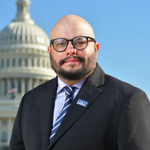
Angel Vallejos
CHCI-API Graduate Fellow
Description:
The energy industry is one of Mexico’s biggest contributors in terms of revenue for the state. As the 11th largest producer of oil, Mexico, which is not an OPEC member, has been one of the biggest beneficiaries of oil and gas exports to the United States. According to the Energy Information Administration (EIA), energy accounted for 5% of all U.S. imports from Mexico in 2018 (Kempkey). This briefing will focus on the lack of investment in innovative technologies by the Mexican government to stabilize their highly indebted energy industry that has led to calls from American companies and lawmakers that Mexico is in violation of the spirit of the USMCA.
FULL POLICY BRIEF
Speakers:
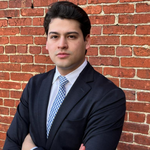
Santiago Salas Oliva
Associate Manager of Government and International Affairs, United States Hispanic Chamber of Commerce
Santiago was born and raised in Mexico City. He started his career as a lobbyist in his second year of college, becoming the youngest registered lobbyist in the country’s top lobbying firm and the Mexican Senate in 2017. Here, he worked on lobbying and PR strategies for Mexico’s top consumer product multinationals. Santiago then transferred to the University of San Francisco where he graduated with a Bachelor of Arts in Politics and a concentration in the Politics of Transformation. At the United States Hispanic Chamber of Commerce, he has extensively covered the needs and opportunities for small and minority-owned business in the United States.

Charles Orta
CHCI-Facebook Graduate Fellow
Description:
Since FY 2017, Congress has appropriated more than $1.52 billion for tech and surveillance to the Department of Homeland Security (DHS), including U.S. Customs and Border Protection (CBP). Many of these funds are being spent on a “digital border wall” at the U.S.-Mexico border, consisting of surveillance towers, drones, sensors, biometrics, and other border security technologies. The digital border wall is described as a “smarter” and more “humane” alternative to President Donald Trump’s physical border wall, and has received strong bipartisan support, including from President Joe Biden. Serious concerns remain, however, about the human rights implications of these technologies on migrants and border communities, particularly those of Latino heritage, as well as these technologies’ ability to achieve their stated purpose. This briefing will address these human rights and efficacy concerns, and the threat border security technologies pose to the broader public, call for Congress to required increased transparency, oversight, and safeguards on their deployment.
FULL POLICY BRIEF
Speakers:

Julie Mao
Deputy Director, Just Futures Law
Julie Mao has more than a decade of experience in the immigrant rights, police accountability, and labor rights movement. She was a senior attorney at the National Immigration Project of the National Lawyers Guild and attorney at the New Orleans Workers’ Center for Racial Justice. She has represented immigrants in civil rights litigation against law enforcement abuse and labor exploitation, and worked with hundreds of directly impacted community members to stop their deportations.
Recently, she has been engaged in legal strategies challenging migrant prosecutions, technology-based policing, and local police collusion with ICE. Julie is a graduate of NYU School of Law where she was a Root-Tilden-Kern Scholar. She is a former Equal Justice Works fellow.

Jacinta Gonzalez
Senior Campaign Organizer, Mijente
Jacinta Gonzalez is a Senior Campaign Organizer with Mijente and coordinates the #NoTechforICE campaign. Previously, she worked at PODER in México, organizing the Río Sonora River Basin committees against water contamination by the mining industry. Jacinta was the lead organizer for the New Orleans Workers’ Center for Racial Justice Congress of Day Laborers (2007-2014). In Louisiana Gonzalez helped establish a base of day laborers and undocumented families dedicated to building worker power, advancing racial justice, and organizing against deportations in post-Katrina New Orleans.

Erica Hellerstein
Senior Reporter, Coda Story
Erica Hellerstein is an award-winning investigative journalist and a senior reporter with the global newsroom Coda Story, where she covers authoritarian technology, disinformation, historical memory, and the war on science. She has covered human rights issues and politics in the U.S. and Latin America for nearly a decade. Her work has been published in The Atlantic, The Guardian, ELLE, Marie Claire, The Washington Post, The San Francisco Chronicle, The San Jose Mercury News, and The Lily, among other publications. You can follow her on Twitter @E_Hellerstein.
DAY FOUR: THURSDAY, MARCH 24, 2022

Omar Alejandro Ibarra
CHCI-AHIP Health Graduate Fellow
Description:
There are currently an estimated 11 million undocumented immigrants in the U.S., most of whom have very little to no access to affordable healthcare services. Federal policy prohibits undocumented immigrants from qualifying for Medicaid due to their immigration status. This federal exclusion and federal policies such as the public charge rule fuel discrimination and increase fears of deportation among undocumented immigrants, forcing them to wait until their health is considered an emergency to access emergency care. Without access to preventive care, undocumented immigrants may be more susceptible to infectious disease, and this is increasingly concerning during the ongoing COVID-19 pandemic. This breifing will focus on the public health threat to both undocumented and documented individuals and outline options available to expand Medicaid and ensure this vulnerable population is given equitable and just access to healthcare in the United States.
FULL POLICY BRIEF
Speakers:

Edith Avila Olea
Policy Manager, Illinois Coalition for Immigrant & Refugee Rights
Edith Avila Olea is an advocate committed to social justice and equitable policy solutions. In 2020, Avila Olea joined the Illinois Coalition for Immigrant and Refugee Rights as the Policy Manager. Working closely with ICIRR members and partner organizations, Avila Olea focuses on policy research, state-level advocacy, education and outreach around the issues of public charge, healthcare access, and social services.
Previously, Avila Olea served as the Justice and Peace Associate Director at the Catholic Diocese of Joliet and as the Parish Outreach Coordinator at Catholic Charities in Joliet. Avila Olea holds a Master of Public Policy degree from DePaul University in Chicago and a Bachelor of Arts degree in Organizational Communication from Shorter University from Rome, Georgia. Avila Olea served as the Vice President on the Board of Directors for the Spanish Community Center in Joliet from 2018-2021. Avila Olea is proud to be an immigrant originally from Mexico.

Dr. Lilia Cervantes
Associate Professor, Physician & Health Services Researcher, University of Colorado School of Medicine
Dr. Cervantes is the Director of Immigrant Health and an Associate Professor in the Department of Medicine at the University of Colorado Anschutz Medical Campus. Dr. Cervantes completed her training at the University of Colorado School of Medicine. Dr. Cervantes is recognized for spearheading an innovative change to a Medicaid payment rule in Colorado to give undocumented patients with kidney failure access to life-saving maintenance dialysis. The collaborative effort came after the passing of her patient and friend, Hilda, a young mother of two boys who was ineligible for routine dialysis due to her undocumented status. Her loss was life-changing commitment to action for Dr. Cervantes. Through strategic documentation and dissection of the enormous human and economic costs of the status quo, and through grit and persistence, Dr. Cervantes conducted research, developed a coalition of allies, and a policy remedy to save others like Hilda. The efforts have garnered national attention and partnerships, leading to efforts to enable routine dialysis for underserved patients in several other states. Following this defining experience, Dr. Cervantes’ work has focused on eliminating structural racism in kidney health disparities. During the current pandemic, Dr. Cervantes worked with the state Medicaid agency to expand outpatient COVID-19 care for undocumented immigrants, launched a government-funded community-based intervention to reduce infections for Latinx, and conducted studies that assessed Latinx COVID-19 disparities. Dr. Cervantes is a member of nine civic and community activity boards, has been invited to speak at over 60 events, including interviews with NPR and CNN for her research, and has received over fifteen awards for her service to the community.

Laurel Lucia
Director, Health Care Program, UC Berkeley Labor Center
Laurel Lucia is director of the Health Care program at the UC Berkeley Labor Center, where she has worked since 2009. Her research focuses on health coverage and cost trends in California, and policies to improve access to and affordability of health care for California workers and their families. Recent publications have examined the impact of rising health care costs for workers in California, policies to improve access to health insurance for California immigrants, shifts in health coverage during COVID-19, and the health coverage and economic impacts in California of the possible repeal of the Affordable Care Act. Since 2014, she has conducted research related to California’s enacted and proposed policies to expand Medi-Cal to all low-income Californians regardless of immigration status.
She provides technical assistance to policymakers and stakeholders, and her work has been covered in the Los Angeles Times, the Atlantic, and National Public Radio. Previously, Laurel worked on issues affecting long term care workers during her time as a researcher/policy analyst for the Service Employees International Union (SEIU). She has served as an elected officer for two unions. Laurel received a Master of Public Policy degree from UC Berkeley and a bachelor’s degree in public policy from Stanford University.

Samantha Artiga
Vice Pres. & Dir., Racial Equity and Health Policy Program, Kaiser Family Foundation
Samantha Artiga serves as Vice President and Director of the Racial Equity and Health Policy Program at KFF. In this role, Ms. Artiga leads KFF’s work to provide timely and reliable data, information, and policy analysis on health and health care disparities affecting people of color and underserved groups and efforts to advance racial equity in health and health care. Her work focuses on the intersection of racism and discrimination, social and economic inequities, and health. She also has conducted extensive work related to the health and health care needs of low-income populations and immigrant families and previously served as Associate Director of KFF’s Program on Medicaid and the Uninsured. Ms. Artiga holds a master’s degree in health policy from the George Washington University.

Isabella Paz Baldrich
CHCI-PepsiCo Nutritional Health Graduate Fellow
Description:
In this session, a deep dive will be taken on how food insecurity largely affects Hispanic and Latino children. Consistency, the literature shows the negative outcomes of food insecurity in children such as poor mental health, cognitive impairments, social, emotional, and behavioral problems, and low educational attainment. Latino children are the fastest-growing child population in the U.S. and are more likely to be food insecure, live in a low-income household, and live in poverty. A weak foundation for learning, behavior, and health are consequences of an altered and weakened brain architecture due to stress and nutritional deficiencies seen through food insecurity. During this briefing, panelists will share the importance of strengthening the child nutrition programs to allow for more children to receive quality nutrition and therefore directly counteract child food insecurity.
FULL POLICY BRIEF
Speakers:
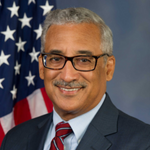
Chairman Robert “Bobby” C. Scott
House Committee on Education and Labor

Angela Odoms Young, PhD
Associate Professor and Director of the Food and Nutrition Education in Communities Program and New York State Expanded Food and Nutrition Education Program, Cornell University
Angela Odoms-Young, PhD, is an Associate Professor and Director of the Food and Nutrition Education in Communities Program in the Division of Nutritional Sciences at Cornell University. Her research explores social and structural determinants of dietary behaviors and diet-related diseases in low-income and Black/Latinx populations and centers on identifying culturally appropriate programs and policies that promote health equity, food justice, and community resilience. Dr. Odoms-Young has over 20 years experience partnering with communities to improve nutrition and health and 200+ academic publications, book chapters, and presentations. She has served on numerous advisory committees and boards, including the National Academy of Sciences Food and Nutrition Board the Institute of Medicine committees, to develop the nutrition standards for the National School Lunch Program/School Breakfast Program and revise the food packages provided in the Supplemental Program for Women, Infants, and Children (WIC), and Council on Black Health. Dr. Odoms-Young has also currently serves as the inaugural Equity Visiting Scholar at Feeding America.
Dr. Odoms-Young received her B.S. in Foods and Nutrition from the University of Illinois at Urbana-Champaign and M.S./PhD in Community Nutrition from Cornell University. Additionally, she completed a Family Research Consortium Postdoctoral Fellowship examining family processes in diverse populations at the Pennsylvania State University and the University of Illinois at Urbana-Champaign and a Community Health Scholars Fellowship in community-based participatory research at the University of Michigan School of Public Health. Before joining Cornell Dr. Odoms-Young was on the faculty at University of Illinois at Chicago in the Department of Kinesiology and Nutrition.

Sandra Arevalo, MPH, RDN, CDN, CLC, CDCES, FADA
Director, Community Health & Wellness, Montefiore Nyack Hospital
Sandra is an independent consultant and Director of Community Health & Wellness at Montefiore Nyack Hospital. Her commitment is to provide health information and promote disease prevention among the most underserved and diverse families. With over 15 years of experience, she is a recognized national expert and speaker on diversity, health education, diabetes, nutrition, chronic diseases and social determinants of health. Her work has been featured in national and international TV, numerous printed media outlets, radio, and peer reviewed journals. She is a spokesperson for the Academy of Nutrition and Dietetics and the American Diabetes Care & Education Specialists. She has been serving on the board of various professional organizations. She has received numerous nominations and awards including Mom On A Mission, next to Michelle Obama (2017) and the Garden State Diabetes Educator of the Year Award (2018).

Dr. Kimberly G. Montez, MD, MPH, FAAP
Asst. Prof., Pediatrics & Assoc. Dir., Maya Angelou Center for Health Equity, Wake Forest School of Medicine
Kimberly Montez, MD, MPH, FAAP is an Assistant Professor of Pediatrics, Associate Program Director for the Pediatric Residency Program, and an Associate Director at the Maya Angelou Center for Health Equity at the Wake Forest School of Medicine. Dr. Montez is a certified, Spanish-speaking bilingual Latina general pediatrician who cares for a largely Hispanic/Latino population and is a health services researcher with a focus on health disparities, including food insecurity, immigrant and refugee health, health equity, and community-engaged research.
Dr. Montez is Vice Chair for the Executive Committee of the American Academy of Pediatrics Council on Community Pediatrics, through which she co-authored the Food Insecurity Toolkit for Pediatricians with the AAP and the Food Research & Action Center (FRAC), serves as faculty for the AAP Food Insecurity ECHO, and is a lead author for the revision of the AAP Food Security Policy Statement.
Dr. Montez received her Bachelor of Arts degree from Yale University, her Doctor of Medicine degree from the Stanford School of Medicine, and her Master of Public Health from the T.H. Chan Harvard School of Public Health. She completed fellowship at the Massachusetts General Hospital and Harvard Medical School.

Allison Lacko, PhD
Senior Nutrition Research & Policy Analyst, Food Research & Action Center
Allison joined FRAC in 2020 as the Senior Nutrition Research and Policy Analyst. She is responsible for providing research and analysis that informs FRAC’s advocacy to address the root causes of hunger and strengthen the federal nutrition programs. She also writes the quarterly ResearchWIRE, a newsletter highlighting the latest research on food insecurity in the U.S.
Previously, Allison served in the Peace Corps (Costa Rica 2012-2014) and worked for Zufall Health, a federally-qualified health center in her home state of NJ. She received her B.A. in Economics from Columbia University. In 2020, Allison received her Ph.D. in Nutrition Epidemiology from the Gillings School of Global Public Health at UNC Chapel Hill. When not studying food and health, Allison can be found making hot sauce or finding her tumbao on the salsa floor.
DAY FIVE: FRIDAY, MARCH 25, 2022

Michelle Paucar
CHCI-CVS Health Graduate Fellow
Description:
From 2000 to 2018, health care quality improved across several quality measures such as person-centered care, patient safety, healthy living, care coordination, etc. Yet, the 2019 National HealthcarQuality and Disparities Report indicates that several inequalities in the quality of care provided to racial and ethnic minorities has continued and even worsened. Compared to non- Hispanic Whites, Hispanic patients are more likely to experience inadequate quality of care. Moreover, undocumented Hispanic immigrants report substandard health care quality and poor patient experience in comparison to U.S.-born Hispanics. In this brief, we will define the concept of “quality of care” and identify factors impacting quality of care. We will also analyze the impact that discriminatory practices and anti-immigration policies embedded in the healthcare system have upon Latino healthcare outcomes Lastly, we will discuss existing quality improvement tools/strategies and propose several recommendations to improve quality of care for the Hispanic population.
FULL POLICY BRIEF
Speakers:

Karla Silverman, RN, CNM, MS
Associate Director, Complex Care Delivery, Center for Health Care Strategies
Karla Silverman, MS, RN, CNM, is the associate director of complex care delivery at the Center for Health Care Strategies (CHCS). At CHCS, she leads Advancing Integrated Models, an initiative that helps organizations develop and provide person-centered, integrated care for complex populations, as well as the MassHealth Care Planning Learning Collaborative that supports partnerships between Medicaid accountable care organizations and community providers across the state of Massachusetts.
Ms. Silverman began her career as a certified nurse-midwife at Community Healthcare Network, a federally qualified health center in New York City. Later, she served as clinical director at Planned Parenthood Hudson Peconic where she oversaw clinical operations and training for 12 health centers.
Before joining CHCS, Ms. Silverman was a program director at Primary Care Development Corporation, where she led a team that created a nationally respected training and technical assistance program in care coordination and care management.
Ms. Silverman holds a master’s of science from Columbia University School of Nursing, and a bachelor’s of arts in history and theater arts from Brown University. Currently, she is also an adjunct professor at the New York University School of Global Public Health where she teaches a graduate course on value-based care.

Adolfo G. Cuevas, PhD
Gerald R. Gill Assistant Professor of Race, Culture, & Society, Tufts University
Adolfo G. Cuevas, Ph.D., is the Gerald R. Gill Assistant Professor of Race, Culture, and Society and Director of the Psychosocial Determinants of Health Group at Tufts University. His work primarily focuses on the intersection between race/ethnicity, psychosocial determinants, and aging-related diseases. His work has been published in scientific journals, such as Proceedings of the National Academy of Sciences, Brain, Behavior, and Immunity, and American Journal of Public Health and featured in HuffPost and NPR’s Code Switch. He was selected as one of the National Minority Quality Forum’s 40 Under 40 Leaders in Minority Health for his work on racism and health. Dr. Cuevas received his Ph.D. and MS in Applied Psychology at Portland State University, and BA in Psychology at City College of New York. He attained additional training as a cancer prevention postdoctoral fellow at the Harvard T.H. Chan School of Public Health (2015-2017).

David Roman
Director, Development and Communications, South Central Family Health Center
David Roman is Director of Development and Communications at South Central Family Health Center (SCFHC), a non-profit federally qualified health center that provided care to more than 25,000 unique patients in 2021. SCFHC is located in a historically African American community that experienced significant demographic shifts during the 1990s. Today, the community is overwhelmingly Latino, very poor, and continues to lack access to basic resources as a result of decades of low-educational attainment, a lack of employment opportunity, and structural underinvestment. SCFHC is committed to closing the healthcare access gap by utilizing a patient-centered approach that elevates the needs of marginalized residents that depends upon successful communication and feedback loops between the clinic and its patients. As a key member of SCFHC’s senior management team, it is Mr. Roman’s privilege to create bridges between patient voice, community need, and key governmental, business, and philanthropic stakeholders needed to support the life-affirming primary medical, dental, and behavioral care services provided by SCFHC to all members of the community regardless of ability to pay.

Helen Arteaga-Landaverde
Chief Executive Officer, NYC Health + Hospitals/Elmhurst
Helen Arteaga is CEO at New York City Health + Hospitals/Elmhurst, a large community hospital and Level 1 Trauma Center serving over 1.2 million Queens residents. She is Ecuadorian and a long-time resident of Corona, Queens. She grew up understanding the role that health care had on a community and dreamed of establishing a community health center that would provide quality health care to local residents. Following the death of her community activist father, she set out to build that health center in her beloved Corona. Working with Our Lady of Sorrows Church and other community leaders, she sought out Paloma Hernandez, the President and CEO of Urban Health Plan, Inc., to make her dream a reality. Together, they opened Plaza del Sol Family Health Center in June, 2009. Last year, Plaza Del Sol provided care to more than 29,000 patients. The health center was dedicated in her father’s memory in 2014. Helen has a bachelor’s degree from NYU and a Master of Public Health from Columbia University’s Mailman School of Public Health. She completed a fellowship with the National Hispana Leadership Institute and Harvard Kennedy School of Government in September 2010. In March 2016, she was appointed to the NYC Health + Hospitals Board of Directors and to the NYU Alumni Board of Directors. She is currently completing her doctoral degree at CUNY-School of Public Health. She was one of 31 women selected by the New York City Commission on Women’s Issues to be featured in “NYC Women: Make it Here, Make it Happen,” a series highlighting women who made a difference in their communities. Helen is a recipient of the Community Impact Award, Humanitarian Award and City of New York American Dreamer Award. In 2021 she was named as one of City and State’s Queens Power 100 and as one of Crain’s New York Business’s Notable Hispanic Leaders and Executives. She was also honored by Queens District Attorney Melinda Katz during Hispanic Heritage Month for her contributions to the community.

Tania Calle
CHCI-DaVita Health Graduate Fellow
Description:
The mental health burden housed within the carcel system is a public health crisis. A 2016 survey by the Bureau of Justice Statistics found that 53.9% of state and federal inmates in a national sample had an indication of a mental health problem. Such a high prevalence of mental illness is particularly concerning given the various ways in which carcel environments are ill-equipped to and potentially even likely to exacerbate mental illness. Notably, this issue extends beyond prison walls. At every point of the criminal justice process, entry, incarceration, and release, mentally ill individuals are underserved and at risk for harm. This panel will discuss the status and needs of justice-involved individuals living with mental illness as well as key policy recommendations to address the mental health crisis within the criminal justice system.
FULL POLICY BRIEF
Speakers:

Kate Boccia
President & CEO,National Incarceration Association
Kate Boccia has etched her mark into Georgia politics, public service and philanthropy as nothing more than the most diligent of moms who will knock on any door and never settle for an easy answer to a complicated question. As the brainchild of the NIA, its president and chief executive officer, Kate has opened many doors for ordinary people and their families who had become accustomed to being silenced by status-quo power and outdated public policy.
Kate’s life-long love of community service and desire to give back has earned her a notable and respected seat as an advocate and leader making a difference. Her diligence and resolve have partnered together families, other advocates, agency heads and policy makers who understand that the opportune time for essential change is upon us now.
Kate’s personal mass incarceration journey as a parent began when her son Daniel, was sentenced on a mandatory minimum in the state of Georgia. Step by dark spiraling step, Daniel was consumed into an addiction to heroin and prescription drugs. As too often is the case, Daniel was later released from prison having not received any soluble treatment for his addiction nor any connected strategies to correct any propensities that remain beyond the capacity of even the most involved of American families to manage. He overdosed and passed away while in the residential care of a highly acclaimed treatment center. “My son’s story underscores the issues we are facing in our country; issues that must be addressed and solutions that must be explored and implemented.”
After many tears and sleepless nights, Kate is still adjusting to her family’s new normal of trauma and loss while challenging a stubborn and untamed public-opinion spotlight. Ignoring stigmas and callously politicized rhetoric, she now spends all her time waging strategic battles for families who are losing their loved ones to mass incarceration and addiction.

Shannon Scully
Senior Advisor, Justice & Crisis Response Policy, National Alliance on Mental Illness (NAMI)
Shannon Scully is the Senior Advisor for Justice and Crisis Response Policy at NAMI, where she serves as a subject matter expert, providing strategic guidance across the organization regarding NAMI’s criminal justice, diversion, and crisis response policy. She works closely with federal agencies and Congress to advance NAMI’s priorities and supports leaders across the NAMI Alliance to increase their impact on local and state policies. Prior to joining NAMI, Ms. Scully worked for multiple national non-profit organizations including the VERA Institute of Justice on justice related issues. She began her criminal justice career supporting victims of crime in the county courts in Cook County, IL. Ms. Scully holds a bachelor’s degree from the College of St. Benedict, and a Masters of Public Policy from American University.

Carin Ikenberg, PhD
Professional Social Worker, National Incarceration Association
Dr. Carin Ikenberg was born and raised in Northern Virginia. Throughout her education, her goal was to advocate for those who did not believe they had a voice. Ultimately, she found her life’s calling while working with system involved men at one of Georgia’s state prisons. Dr. Ikenberg is recognized among her clinical and research peers, and certain prison populations and families impacted by failed justice, as that hyper-focused and intimately proximate fighter for reform. She is most comfortable right in the middle of the deepest pit of ignored need where many try to avoid getting dirty.
Dr. Ikenberg practiced extensively inside one of Georgia’s medium-security prisons for men located in metro Atlanta. Such work led her to the passionate conviction that structured and strategic relationships with family and support circles is fundamental to the comprehensive rehabilitation of anyone who is system involved. Additionally, critical elements of rehabilitation include the application of sensible, results-intended sentencing laws, restorative justice practices, and compassionate and measurable treatment of addiction and mental illness.
Dr. Ikenberg is frequently called upon to serve on research and assessment teams, treatment advisories, and discussion panels. She received her B.A from South University in Savannah, GA, and her M.S.W. and Ph.D. from the University of Alabama, School of Social Work. She continues her advocacy as a full-time faculty member of Grand Canyon University’s School of Social Work, and an Adjunct professor at the University of Alabama. She also donates countless hours of professional expertise as a Program Development Manager for the National Incarceration Association (joinNIA.com).

Tracie Gardner
Senior Vice President, Policy Advocacy,Legal Action Center
As Legal Action Center’s Senior Vice President of Policy Advocacy, Tracie oversees both the New York and Federal policy advocacy work on LAC’s core issues related to substance use, harm reduction, and criminal legal system reform. Tracie has worked more than 30 years in the health and social services policy arena as a policy advocate, trainer, and lobbyist. From 2015-2017, Tracie served as the Assistant Secretary of Mental Hygiene for New York State, where she oversaw the State’s addiction, mental health, and developmental disabilities agencies. Tracie received a B.A. from Mount Holyoke College.
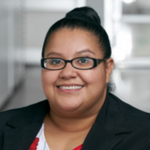
Maggie Luna
Hogg Foundation for Mental Health Peer Policy Fellow, Texas Center for Justice & Equity
Maggie is the Hogg Foundation Peer Policy Fellow at Texas Center for Justice and Equity. Her work involves research, coordinating activities and communicating issues relating to decreasing the prison population and transforming policies within the context of the criminal justice system in Texas. Maggie strives to cultivate relationships with policy makers to effectively advocate in ending harsh sentencing and racial inequities within the context of the criminal justice system while also researching legislative proposals that work to reform the criminal justice system to operate equitably and ensure humanity for all. She organizes the Statewide Leadership Council, a team of system-impacted leaders advocating for transformation in Texas’ justice system.
THANK YOU TO OUR EVENT SPONSORS
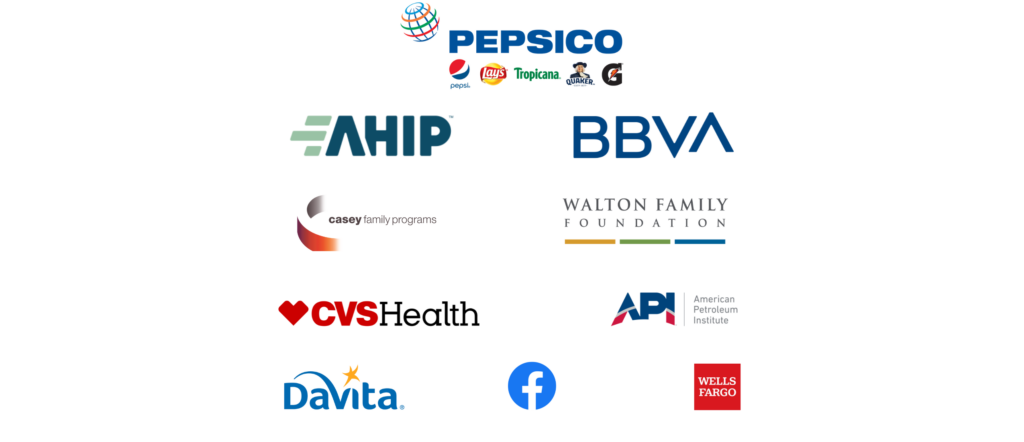
For questions email: info@chci.org